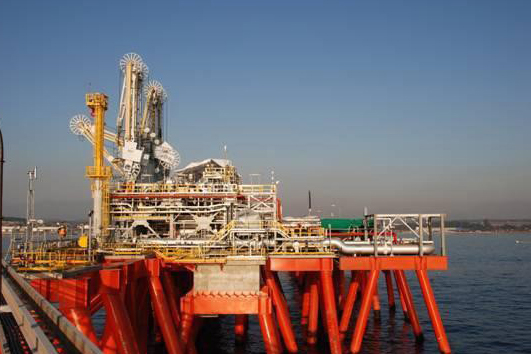Safety Case Support for LNG Import Facility
Chile had an urgent need to improve the stability of its natural gas supply as it moved towards energy independence from its neighbours. The country’s small natural gas resources led it to invest in a $1.2 billon Liquefied Natural Gas (LNG) import facility at Quintero, 150 km north of the capital Santiago. When completed, the facility would be capable of receiving tankers containing 2.5 million tonnes of LNG per annum; 40% of Chile’s gas requirements.
The facility consisted of a jetty for tanker receipt, three 150,000 m3 storage tanks, and a series of open-rack vaporisers that would convert the LNG from its liquid state at -161 ºC to a gas that could be safely pumped into the National Grid. In its transported state, LNG is 600 times denser than in its gaseous state and does not combust. Although this makes it suitable for transporting on tankers, the tendency for the LNG to expand rapidly if it leaks means that there are a number of risks inherent in its subsequent receipt, transfer and processing. These include fire, explosion, freezing and asphyxiation.
In order to safely build and operate the facility to code (NFPA59A/EN-1473), it was necessary to show that all relevant safety risks had been identified and mitigated. It was also necessary to plan an emergency response, since the facility is self-enclosed and is not easily accessible by emergency services.
Our Approach
MMI’s safety engineering team worked closely with the project from its early stages. The core part of the team’s work was to show that safety critical aspects followed the As Low As Reasonably Practicable (ALARP) principle at all times. This was done primarily through the development of a robust safety case and risk assessments. The MMI team was responsible for developing and supporting the following key documents:
- Safety case
- Quantitative Risk Assessment (QRA)
- Emergency response plan
- Emergency response procedure
The team was also responsible for underpinning the general safety of the project by:
- Running safety case workshops
- Ensuring good engineering practice
Outcome
The project came online to time and cost in August 2009. Since then, it has been operating safely and successfully to help meet Chile’s gas requirements. MMI’s safety engineers are committed to providing ongoing support to ensure that it continues to do so.
For more information on our Safety Case capabilities, or to discuss your project requirements, please contact us on +1 281 920 4600 (Houston) / 01224 061 480 (Aberdeen) or email us.
